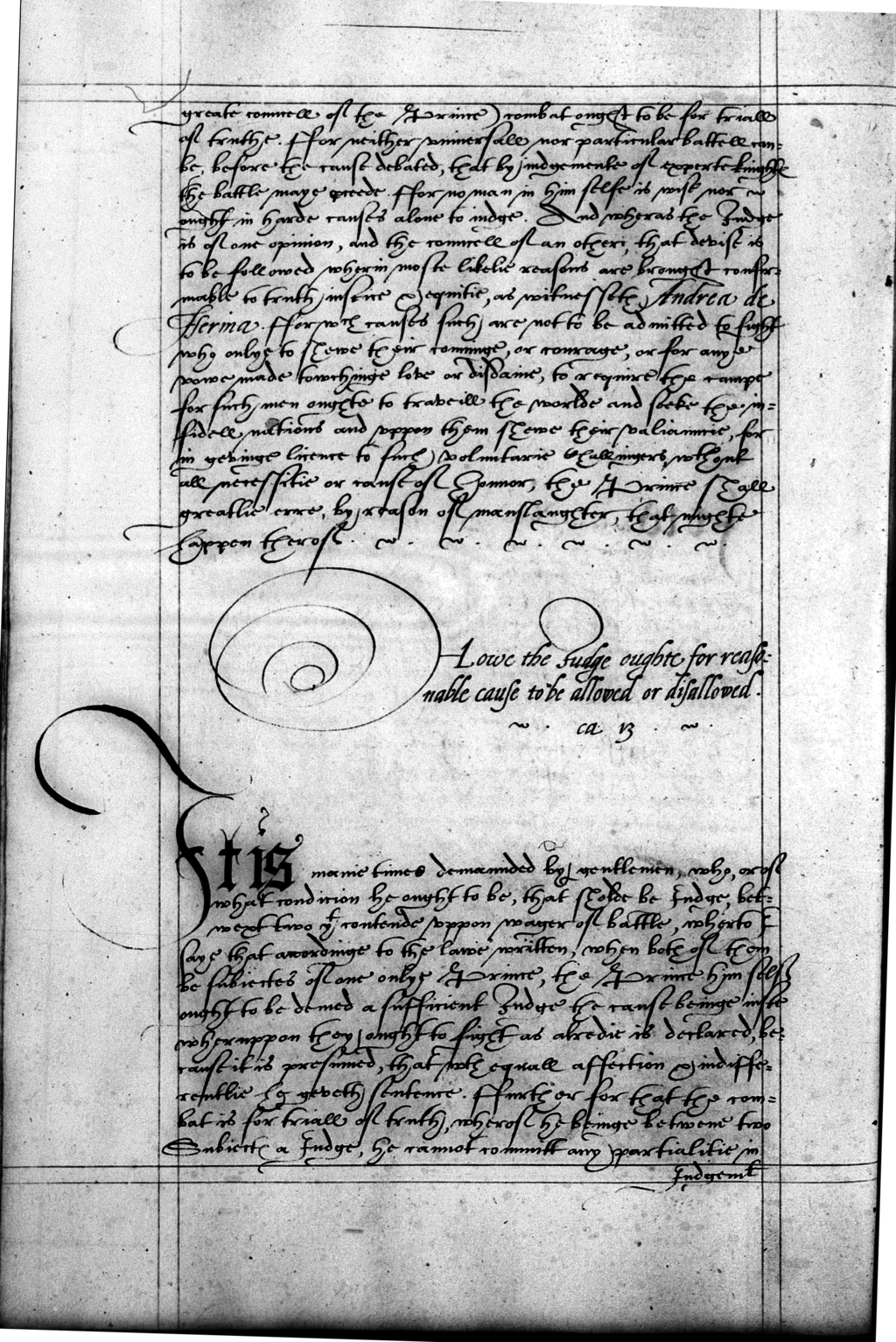greate councell of the Prince) combat ought to be for triall
of truthe. ffor neither vniuersall nor particular battle can
be before the cause debated, that by iudgemente of experte knights
the battle maye prcede. ffor no man in him selfe is wise nor
ought in harde causes alone to iudge. And wheras the Iudge
is of one opinion, and the councell of an other, that devise is
to be followed wherin moste likelie reasons are brought conser:
nable to truth iustice & equitie, as witnesseth Andrea de
Herma. ffor wch causes such are not to be admitted to fight
who onlye to shewe their conninge or courage, or for anye
vowe made towchinge love or disdaine, to require the campe
for such men oughte to traveill the worlde and seeke the in:
fidell nations and vppon them shewe their valianncie, for
in gevinge licence to suche voluntarie Challingers, wthout
all necessitie or cause of honnor, the Prince shall
greatlie erre, by reason of manslaughter, that mighte
happen therof.
Howe the Iudge oughte for reaso:
nable cause to be allowed or disallowed.
Ca. 13.
It is manie times demannded by gentlemen, who, or of
what condicion he ought to be, that sholde be Iudge, bet:
wext two yt contende vppon wager of battle, wherto I
saye that accordinge to the lawe written, when both of them
be subiectes of one onlye Prince, the Prince him self
ought to be demed a sufficient Iudge the cause being iuste
wheruppon they oughte to fight as alredie is declared, be:
cause it is presumed, that wth equall affection & indiffe:
rentlie he geveth sentence. ffurther for that the com:
bat is for triall of truth, wherof he beinge betwene two
Subiects a Iudge, he cannot committ anye partialitie in
|
|
You are not currently logged in. Are you accessing the unsecure (http) portal? Click here to switch to the secure portal. |
Page:MS V.b.104 037v.png
Jump to navigation
Jump to search

This page needs to be proofread.

